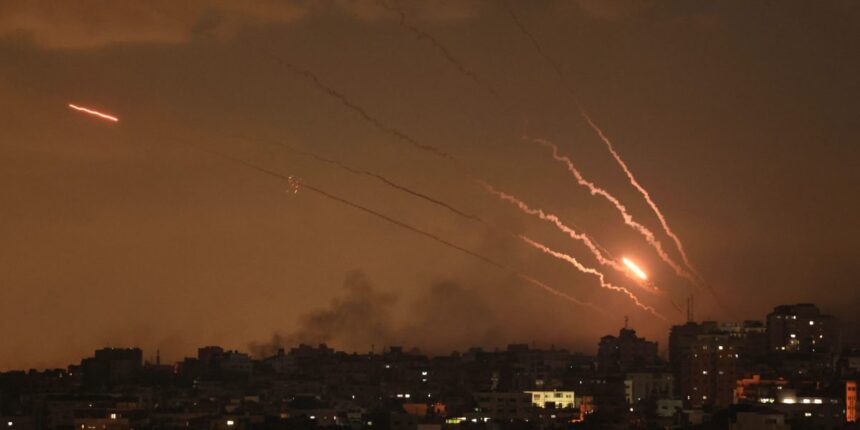
On Saturday morning, Efrat Duvdevani woke up in her home in central Israel shortly after a deadly attack launched from the Gaza strip that killed hundreds and launched the latest volley in violence between Israel and the occupied Palestinian territories.
Speaking from her home, Duvdevani, general director of the Shimon Peres Center for Peace and Innovation in Tel Aviv, described a situation where “nothing is actually safe.”
“We’ve had two sirens today,” she told Fortune CEO Alan Murray at the Most Powerful Women summit Tuesday. “And we had to run to the shelter with all of the children and the dogs trembling and everybody in,” she said.
Duvdevani was describing the moments early Saturday morning, on a major Jewish holiday, when Hamas launched a surprise attack, the worst in 50 years, killing hundreds and taking dozens of hostages.
“I woke up at 6:30, 6:45, and started hearing beeps from my phone. It was like waking up from a nightmare, a nightmare that we couldn’t even imagine how bad it’s going to be,” she said. “We have almost 3,000 people injured, over 1,000 people murdered. Some of them beheaded … we see horrific pictures … terrible things that you can’t even imagine,” she said.
Duvdevani shared her concern for her elderly parents who live in Ashkelon, a city in southern Israel that is within striking distance of Gaza and frequently targeted by rockets.
“I’m considered actually lucky because we’re living in the center of Israel,” she said. “In the southern part of Israel, which is only an hour from my house, live my parents in Ashkelon, and they have thousands of missiles and rockets on their house, their house is almost torn apart,” she said. “They’re 85 year old people, and they will not leave their house. So imagine how thrown we feel,” she added.
‘Solidarity is 100%’
Saturday’s attack was met with a declaration of war from Israeli Prime Minister Benjamin Netanyahu and a vow of immediate retaliation. Since then, more than 830 people have been killed in Gaza and more than 1,000 in Israel, while Israeli airstrikes have obliterated parts of Gaza and displaced tens of thousands of civilians, according to the Associated Press.
The incipient war has had a unifying effect on Israeli society, which had been racked by protests against what critics call the increasingly right-wing and antidemocratic turn of prime minister Benjamin Netanyahu’s government.
“Israeli society is sometimes torn apart by politics and everything. But this is a time where … solidarity is 100%,” Duvdevani said. “You can see it—children, grownups, working shoulder to shoulder, packing up packages and helping victims and helping soldiers.”
She also shared a rare perspective from the Peres center, a nonprofit founded by the late Israeli politician and Nobel laureate Shimon Peres.
Peres “always told us to dream big, and we’re trying to dream big,” she said. “So we’re thinking of plans to rehabilitate the society, which has been torn apart, shredded, vanished, some villages are actually nonexistent anymore, and we’re working on how to make things into a better world for us.”
She concluded by sharing a thought from Peres on the importance of optimism, saying, “The optimist and pessimist die the same way. They only live a different life,” she said. “And we definitely want to live the life of an optimist. So even in times of the greatest nightmare and crisis, we have to try to stay optimistic.”








